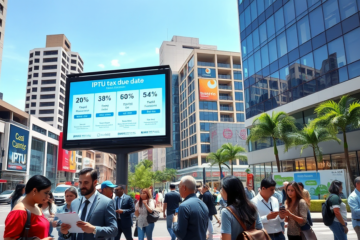Brazil and the Opportunity in Rare Earths
Rare Earths are essential elements for several high-tech industries and play a crucial role in the transition to renewable energy.
In this article, we will explore Brazil's significant rare earth reserves, their economic and strategic implications, as well as the export landscape, China's dominance in refining, and the growing US interest in this resource.
We will also discuss opportunities for the development of the processing industry in Brazil, including initiatives such as the MagBras Project, and the challenges the country faces in establishing itself as a leading player in the global strategic minerals market.
Reserves and Exports of Rare Earths in Brazil
Brazil has the second largest reserve of rare earths in the world, estimated at around 21 million tons.
This abundant reserve represents a strategic wealth for the country.
However, most of these lands leave Brazil in their original form. gross, which limits the added value that the country could capture.
This form of export highlights Brazil's dependence on China, as the Asian country has the largest global refining capacity for these minerals.
This scenario creates a technological and commercial dependence that negatively impacts the Brazilian economy.
Given the US interest in Brazilian rare earth reserves, there is a window of opportunity for Brazil to create and develop its own processing and refining industry.
Initiatives such as MagBras Project and funding programs for mineral research are essential to breaking the Chinese dominance.
The challenge remains to overcome technological and competitive obstacles, seeking to establish Brazil as a protagonist in the global strategic minerals market.
U.S. Interest and 50% Tariffs: A Window of Opportunity
The United States imposed a tariff of 50% on Brazilian exports, causing interest in Brazilian rare earths to increase significantly.
Given this geopolitical scenario, the window of opportunity presents itself to Brazil.
The country's capacity to develop its rare earth processing industry becomes crucial.
This is a good time for Brazil to not only export raw materials, but also add value internally, fostering the creation of a robust and competitive sector in the global market.
Furthermore, the urgent action to avoid losing competitiveness becomes evident.
If Brazil wants to position itself as a true player in the strategic minerals sector, it is imperative that it face technological and competitiveness challenges.
Leveraging initiatives like the MagBras Project and strengthening funding for mineral research are essential steps to transform this window of opportunity in lasting economic benefits.
MagBras Project and the Technological Challenges of National Refining
Brazil, which holds the second largest reserves of rare earths in the world, is in a strategic position to leverage its economy in the strategic minerals sector.
However, a series of challenges still prevent the country from exploring its full potential in this area. according to the data.
O MagBras Project emerges as a fundamental initiative in promoting autonomy in the refining of rare earths, seeking to consolidate a robust and independent production chain.
Another important aspect is the support of public funding for mineral research, enabling the development of innovative technologies that can transform national refining capacity.
However, Brazil faces technological and competitiveness obstacles, such as the need to make up for the lack of yttrium separation plants, which are fundamental in the beneficiation process.
“Data from the MME indicate a lack of yttrium separation plants.
“
Overcoming these barriers is essential for the country to assume global prominence.
The scale of production also presents a challenge to be overcome, as it competes with highly developed and established markets, such as China.
Thus, the importance of continuous investments in infrastructure and professional training is emphasized, aiming to integrate Brazil into the international market with competitiveness and innovation.
Rare Earths represent a unique opportunity for Brazil, but it is essential that the country faces technological and competitiveness challenges to take advantage of its full potential.
With the right strategies, Brazil can consolidate its position in the global strategic minerals market.



0 Comments